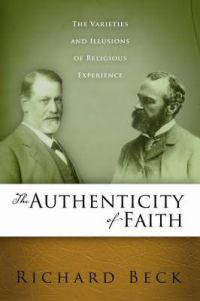
The book is aimed at producing a new kind of apologetics to answer the question “why believe in God.” This new kind of apologetics is not trying to argue, as classical apologetics did, the truth of religious claims [ontology and epistemology] – rather it argues for the possibility of an authentic faith experience. An authentic faith experience stands over and against what the modern critics of religion deemed it to be, namely, an illusion, a narcotic and fear management that functions as an existential consolation. This existential consolation is employed by people not willing to accept the reality of their existential situation – death and non-existence, free will and responsibility, meaning, isolation (culture and religion is employed to satiate the existential needs we have regarding these existential categories).
The modern critics have moved away from asking questions related to the truth claims of religion, to asking functional questions, e.g., is religion doing some kind of useful social, biological or psychological work for us – does it help us thrive socially, psychologically and biologically and does it help us cope with life’s existential realities. This reroutes the conversation to ask: “what is the underlying motivations for believing in God.” This is a reductionist approach (denigrating belief to the task of fulfilling certain functions).
The functional account of faith can, to some degree, be attributed to David Hume’s assertion that reason is, at root, the slave of passions. Our passions (e.g. belief in God), are not produced by reason, evidence or argument; rather, we have felt a priori convictions (passions) that we try to authenticate by adding, ad hoc, arguments, reasons and evidence to justify these convictions.
This can be illustrated by what is called: moral dumbfounding. When people are exposed to situations that necessitates a moral verdict, all will be able to label it right or wrong based on a priori convictions (passions), but most will not be able to rationalize their answer to a satisfactory degree. Thus, Hume would state: passion precedes reason. In the context of religion, the believer would judge situations based on what their prescribed beliefs.
The functional view of religion always engages any religious phenomena with a hermeneutic of suspicion.
In the bulk of his discussion, Beck focusses on the seminal work of three scholars: William James’ The varieties of faith, Freud’s The future of an illusion and Ernest Becker’s The denial of death. In broad strokes Beck’s argument can be summed up as follows:
- Freud’s seminal work argues that all of religious faith is an illusion aimed at reducing existential fear and anxiety – thus, belief is the product of certain subconscious psychodynamic processes akin to wishful thinking. His view of Christianity is a homogenous group of people employing their faith in the same manner (psychology produces theology)
- Ernest Becker’s work that came after Freud argued that religion is actually a part of a greater human endeavour – that includes all of human culture – to deny death and minimize existential angst.
- From Becker’s work arose the terror management theory (TMT), also known as experimental existentialism – empirical studies aimed at measuring how and to what degree certain human endeavours try to minimize existential anxiety and deny death. These endeavours can be anything that gives a person’s life meaning and makes it comprehensible (religion, culture, ideology etc.), answering the question: “why is life worth living?” His stance toward religion is less concerned with its roots and more with it’s fruits (is religion valuable, regardless of where, how or why it came to be)
- Beck uses TMT experiments, along with William James’ varieties, to show that Freud’s view of Christianity is only part of the story. James argues that the Christian faith experience is not a homogenous one. His observations produced evidence that there are two distinct populations within the Christian faith experience that he called – healthy minded (minimizing evil and maximizing existential consolation) and sick soul (minimizing existential consolation and maximizing evil) Christians.
It is this latter group within the Christian faith experience that Beck argues does not fit the faith-as-illusion model of Freud, and that this stance could be the key to an authentic faith experience: accepting the reality of the theodicy question while remaining faithful (thus, not cowering behind consoling platitudes, while also not turning their back on a faith that creates this cognitive dissonance – Isiah 45 is a prominent text that illustrates the sick soul)
To set out to try and prove that the Christian experience is more heterogeneous, contra Freud, Beck employs four empirical studies that bring a group of Christians up against a certain existential situation: exposure to the ideological Other, the body, art and Satan.
In each study there were two groups – a mortality salience and a control group. All of the participants were measured on Becks DT-scale (defence theology scale) to ascertain if they fall into the category of the healthy-minded (high DTS score) or the sick soul (low DTS score) believer.
- In the first study the two groups were exposed to the ideological Other. In both groups those that tested as healthy minded tended to be more defensive toward the other than the sick soul.
- In the second study the two groups were exposed to thoughts about Jesus’ total bodily humanity (bodily functions, maladies etc.). The healthy minded believers reacted in a more averse way than the sick soul believers in both groups
- In the third study the two groups were exposed to existentially consoling retail Christian art and master class neutral art. In both groups the healthy minded tended to favour the Christian art over the neutral, but a more diverse preference was seen from the sick soul believers.
- In the final study the two groups were asked where they would attribute the origin of evil. The healthy minded heaped most evil onto Satan where in the sick soul group Satan played a lesser part (healthy minded leaned toward a functional dualism, over and against a stronger monotheistic stance by the sick souls)
This empirical studies showed that the Christian faith experience is not homogeneous – thus, not all Christians utilize their faith as a form of existential consolation. Some believe in spite of the emotional burden of believing; in spite of their faith maximizing the presence of evil and minimizing existential consolation.
In conclusion – faith is inauthentic when it is at root being dishonest about the terrors, pain and absurdities of life, when it is employed as existential consolation. Authentic faith regards the theodicy question as the open wound of life – it is the real task of faith and theology to make it possible for us to survive, to go on living with this open wound; the more a person believes the more he experiences pain over suffering in this world. Faith, thus, lead us deeper into suffering, doubt and despair; it makes the experience of suffering more acute, rather than less. The sick soul’s view of faith is that it is a mode of living that is an end in itself. The deeper the significance of pain and the exposure to it, the more the believer is allowed and able to see those who suffer and to stand in solidarity with them. Thus, an authentic faith is always characterised by love.
Advertisements Share this:




